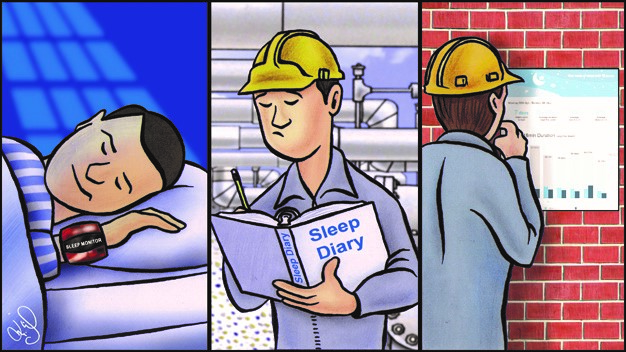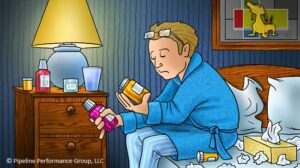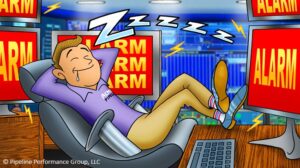According to the Control Room Management regulations, companies are supposed to provide employees with an opportunity for eight hours of continuous sleep. Are you getting eight hours of continuous sleep? Are you getting restorative sleep that includes light, deep, and rapid eye movement sleep? Are there actions you could take to increase the quantity and quality of your sleep?
I have been using a Basis Health Tracker to monitor my sleep health. My friend and colleague, Ali Gibson, uses an app on her iPhone. Other colleagues are using Fitbits to track fitness and sleep. We have all discovered that there are times when both the quantity and quality of our sleep is deficient. This is a result of our travel and work schedules and personal choices that affect us.
How do your shiftwork schedule and personal choices affect your sleep health? Could you benefit from using a sleep diary or some type of device to track your sleep patterns? Some of these items are included in sleep diaries:
- The time you went to sleep and woke up
- The amount of sleep and how well you slept
- Whether or not you had caffeine or alcohol close to bedtime
- Whether or not any medicines or drugs are affecting your sleep
- Whether or not you exercised close to bedtime
- What and when you ate and drank
- What emotions or stress you had prior to going to bed
If you track these items over a two-week period, it will provide useful information that can be used for improving sleep health. Google “sleep diary” for free forms you can use. Suggest that all the people in your workplace keep a diary and then discuss what you have in common and what is different. Fatigue management is both an individual and group endeavor.
Here are some things I have learned by monitoring my sleep health and my behaviors that affect sleep:
- When I exercise in the morning, I have a greater percentage of deep sleep that night and I do not toss and turn as much.
- I sleep better when I do not have any caffeine after 5:00 pm.
- When I stop working on the computer a couple of hours before bedtime, I go to sleep more easily.
- I sleep better when I eat my last meal no later than 7:00 pm.
- A cup of herbal tea makes it easier for me to go to sleep.
- When I go to bed at 10:00 pm (no matter what time zone), I get better sleep than if I stay up later.
- If I read on my iPad just before bedtime, it takes me longer to fall asleep. If I read a printed book or on a Kindle Paperwhite, those don’t affect me.
- Weighing less enables me to sleep better.
As a result of what I am learning, I have taken actions that have increased the quantity of sleep and improved the quality of sleep. Could some of these actions help you? E-mail [email protected] with what you are doing to monitor and to improve your sleep health.




